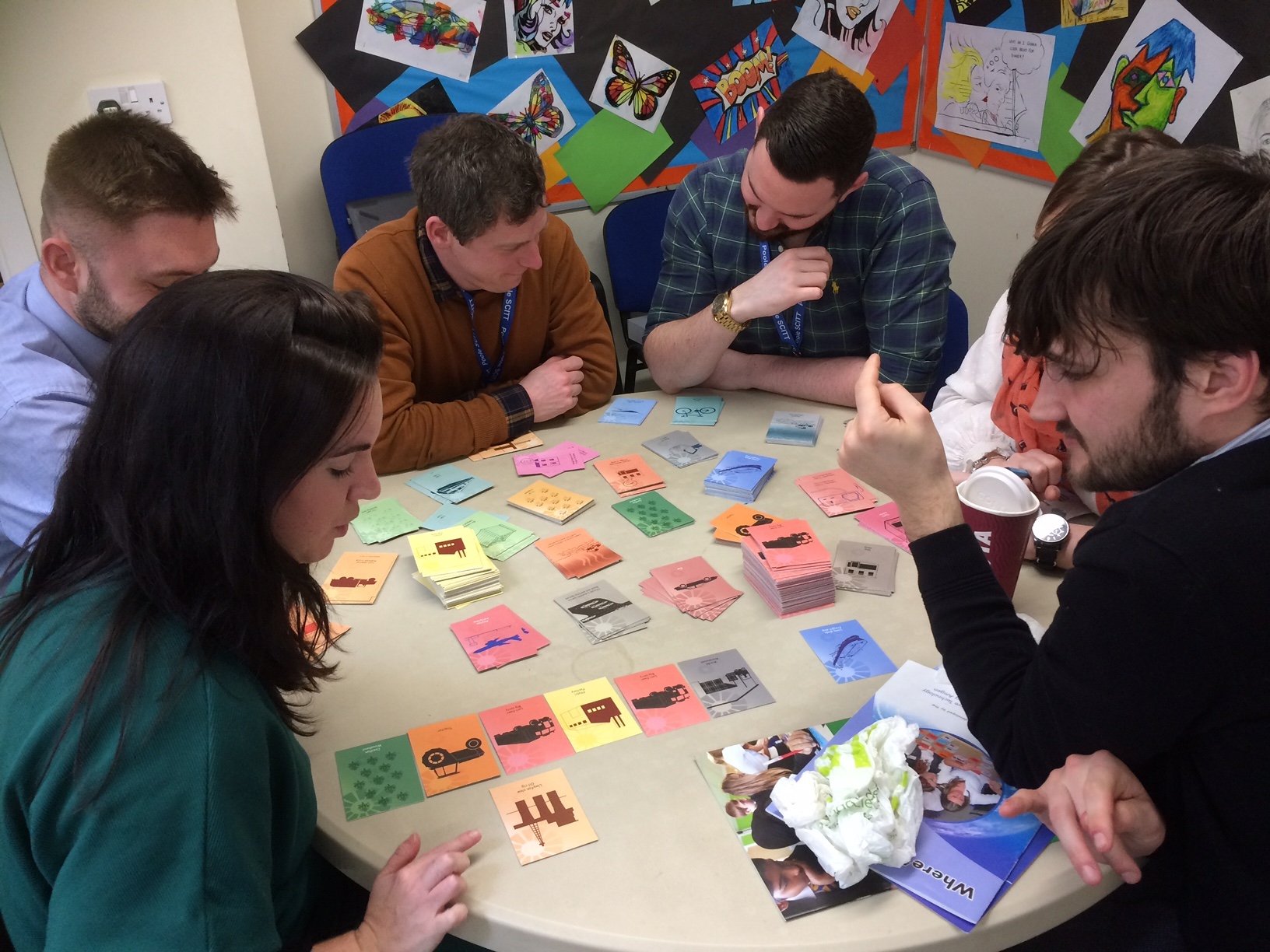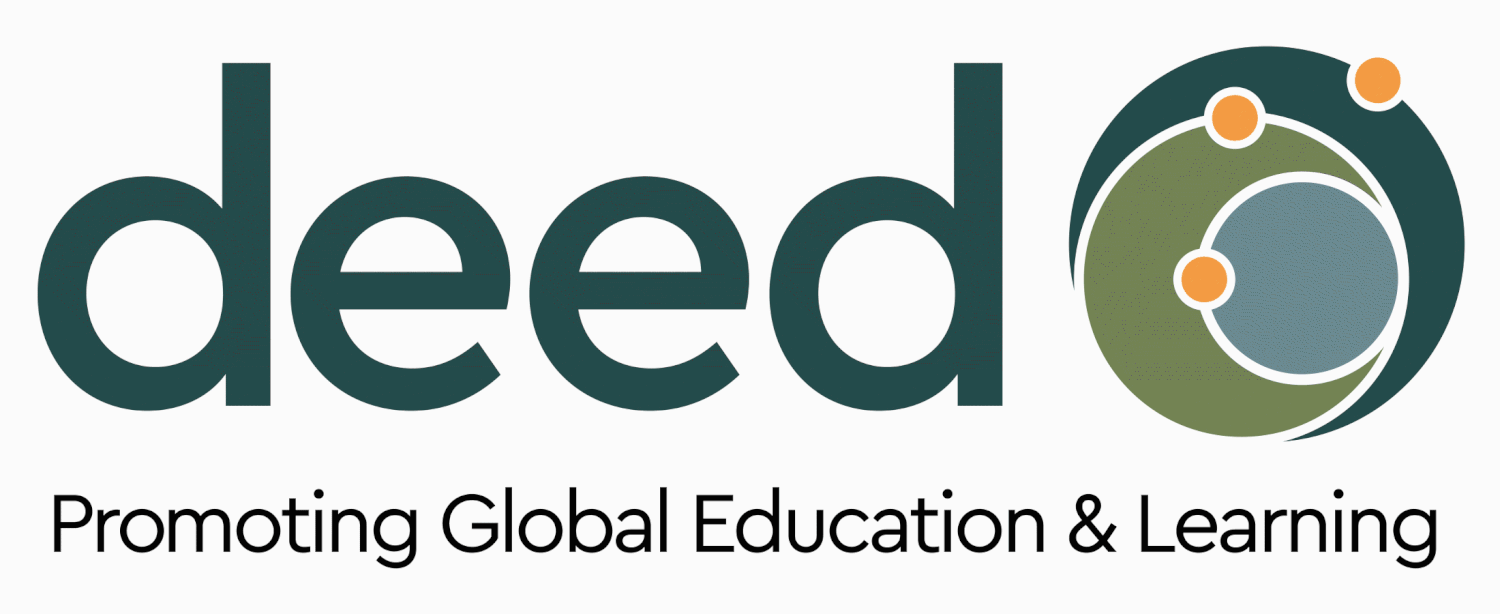
An introduction to Global Learning
This introductory training session for trainee teachers, teaching staff and community members will ask participants to put on their ‘global glasses’ and explore how they see the world. Through useful websites, activities, resources and discussions we look at ways to bring the world into your classroom, whole school or workplace.
We happily tailor-make the course to meet your needs and will lend books and resource collections to enrich your work.
The aim is to understand how the key elements of an Education for Global Citizenship can enrich and support your work, and enable young people to become informed, active and responsible global citizens.
DEED Resources
We have a wide selection of resources which can be borrowed from DEED. These include country collections, themed collections such as Food and Fairtrade, Homes, and Water, as well as curriculum-based books, teaching packs, stories and films. Our resources are designed to be hands-on and support work on Global Citizenship, helping to bring the world to your place, challenge negative stereotypes and promote cultural identity and diversity.
The Global Learning Network
As a national partnership of local development education centres (DECs), The Global Learning Network is the largest provider of global learning at the local level in England and the Isle of Man. Each of the member DECs is an independent, locally based, not-for-profit organisation whose core work is the support and delivery of global learning in schools and communities.
The members of the Consortium work in nearly 80 local authorities that together include more than 13,000 schools–more than half the schools in England. Every year, Consortium members reach thousands of teachers throughout the country through training, classroom support and project work.
Each DEC promotes and supports best practice in global learning through CPD training, whole-school initiatives, advice and access to projects and resources for sale and for loan. Each DEC defines its own areas of work in response to local needs and enquiries, usually working with schools, teachers, local authorities, youth and community groups, universities, volunteers, and adult learners.
Read what key people have to say about the importance of global learning in shaping responsible global citizens and creating a better planet for everyone.
-
“Young people that have an understanding of global matters and the challenges that we face, for example, climate change and conflict, are more likely to take action to help create a fairer and more sustainable world for all.”
Pauline Sterling, TeachSDGs Ambassador. Associate Sustainability Workshop Facilitator at SDG Changemakers. Trustee for DEED and British Council Schools Ambassador.
-
“Global learning is an interesting concept. In the UK we’ve become used to hearing about “global Britain”. We don’t hear about “global Bangladesh”. Why not? Although Bangladesh exports clothing around the world, it seems Bangladesh is not considered a global powerhouse. Straightaway we are confronted with the inequalities which “global learning” sets out to address. Inequalities in the manufacture of clothing, as well as its disposal, are relatively easy to track across national boundaries; global heating much less so as national boundaries do not apply. But the climate crisis, epitomised by global heating, is the issue confronting not only all of humankind, but also our major support system: the one planet on which we all depend. It is obvious that global learning can make a huge contribution to alleviating and solving this and related issues. Ours are the generations which will in a short time, if lessons are learned, turn their backs on fossil fuels and embrace renewable energy and regenerative agriculture. Challenging but exciting times in which to live and learn – globally.”
Rob Pearce – Christian Aid staff member 1978-2010, Christian Aid volunteer 1969-present.
-
“As Headteacher at The Prince of Wales School, I firmly believe that incorporating global learning into our education system aligns seamlessly with the curriculum's goals, ensuring our young learners develop a holistic understanding of the world. In the vibrant tapestry of the Primary Curriculum for England, integrating global learning is not just an educational choice; it's a fundamental aspect of nurturing well-rounded and socially conscious young minds. By embracing diverse perspectives, we empower our primary students to become compassionate, informed and proactive contributors to a fairer and more sustainable world for all. I commend The Global Learning Network for its dedication to enriching education with a global perspective.”
Gary Spracklen Headteacher - The Prince of Wales School, Dorchester, Dorset
-
“The importance of global learning cannot be underestimated. In our rich multicultural society, we need to continue to do all we can to embrace and understand our similarities and differences. As a Church School Leader, it is through this understanding we can unite our students and encourage justice and courageous advocacy, enabling pupils to make ethical choices and to be agents of change.“
Rebecca Bone, Pickwick Academy Trust, Director of Education, Church School Flourishing Lead.
-
“I am often asked what global learning is… In response, I ask people to put on their global glasses and see their world, no matter how small they feel it may be, in a more interconnected way. I may ask what they have eaten for breakfast, or what they are wearing and then consider where has it come from. Who was involved in the production of it? Were the farmers or makers treated fairly? How has it travelled to us? What are the consequences of that journey? By exploring these everyday items with all ages, we can bring the world to our place and understand our interdependence. My hope is that we create more caring, passionate, active global citizens who choose to live more fairly, ethically and sustainably.”
Sarah Wise, DEED Centre Co-ordinator 2000-present
“The training was inspiring - it’s great to have a better understanding of the subject and how I can link it to my practice.”
“Informative, thought provoking and engaging! Fun activities too, thank you, I feel inspired to share these ideas with my class.”
— SCITT trainees











